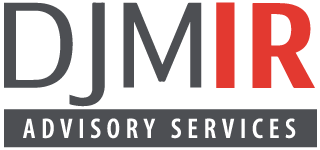What is a Medical Condition?
In general terms, under the Education and Care National Law and national and state based regulations, the highest level of importance is placed on the health and safety of children. A contributing factor in keeping children healthy in childcare, is also the health and wellbeing of employees. A higher level of communication about health must be held between employers and employees than might be reasonable in other non-care sectors of employment. There is an implied duty of care on service providers to ensure employees are, at all times, fit for task, model good health and care and do not, through medical conditions, pose a threat of infection or injury to children in a services care. Every employer, at some point in time has to manage medical certificates provided by staff members who are ill or injured and unable to work. Some staff don’t provide them at all if they have used all their leave, others produce certificates stating the employee has a "medical condition" or is "unable to undertake their usual occupation”. This information leaves employers hanging with little to no information about what might be preventing staff from attending work or if their absence might be necessary to prevent a condition spreading. A Recent Tragic CaseA service provider in NSW recently had a trainee attend a doctor in relation to a persistent cough that was some days later diagnosed as whooping cough. The doctor at the first appointment refused, like many do, to write down what the employee had been tested for and advised the employee that it was an “invasion of her privacy” for an employer to make such a request. The trainee informed the doctor that she was required to give that information under her offer of employment and the services personal leave policy but the doctor continued to refuse. The trainee, fearful of the doctor’s further reprimands, refused to provide the information to her employer, even verbally. In this case, the trainee had been working in the service for almost a week before the service provider was made aware of the trainee’s positive test. Whooping cough as you will know is a highly contagious respiratory infection that can affect people of any age. For adults, the infection may only cause a persistent cough however, for babies and young children, whooping cough can be life threatening. In 2011, 38,732 cases of whooping cough were reported nationally with the highest rates of disease and deaths in infants. Unfortunately, three staff at the service were pregnant at the time of the report and one staff member suffered tragic complications for her child directly attributable to a whooping cough infection. So why should we be able to get this informationWell… let’s look at the basics. We aren’t stacking boxes of tiles or keeping the plants watered at some horticultural centre. We aren’t counting nails or selling candles, we are responsible for the health, wellbeing, education and care of other peoples’ children, not their puppies. Children are signed into our services and effectively our custody, at the beginning of the day, and we cannot release them from a service until an appropriately authorised person turns up. No other workplace has the level of responsibility shouldered on a daily basis by Approved Providers and to a lesser extent, their staff. With that level of responsibility! How can it ever be unreasonable to ask staff to provide information that will satisfy you as an Approved Provider that an employee is not affected by a condition or illness that will impact their capacity to provide care or impact the safety of the children. What does the Fair Work Act Actually Say About CertificatesThe Fair Work Act 2009 (Cth) states at section 107: In relation to notice of the need to take personal leave: An employee must give his or her employer notice of the taking of leave. Such notice must be given to the employer as soon as practicable and must advise the employer of the period, or expected period, of leave. In relation to evidence To Prove The Leave Claimed:An employee must give his or her employer notice of leave and, if required by the employer, give the employer evidence that would satisfy a reasonable personto explain the reason for the absence. In relation to Compliance:An employee is not entitled to take leave unless the employee complies or provides both notice and, if requested by the employer, evidence to explain the absence. It is very clear that, upon request, an employer is entitled to receive evidence that would satisfy a reasonable person to explain any absence… the Act does not draw a difference between paid or unpaid absences. What does the National Health and Medical Research Council Say?The document entitled “Staying Healthy- Preventing infectious diseases in early childhood education and care services” states at clause 1.3.2 in relation to Exclusion of ill children, educators and other staff: The aim of exclusion is to reduce the spread of infectious disease. The less contact there is between people who have an infectious disease and people who are at risk of catching the disease, the less chance the disease has of spreading. Excluding ill children, educators and other staff is an effective way to limit the spread of infection in education and care services. Qantas DecisionIn Australian International Pilots Association V Qantas Airlines, [2014] FCA 32 (6 February 2014), the Federal Court of Australia held that Qantas had an implied contractual right to seek detailed medical information from a pilot. The application grew from an Adverse Action Application by the Union against Qantas because it threatened to discipline a pilot for failing to provide a report from his doctor on his prognosis and ability to return to full duties. The finding demonstrates that sick leave entitlements of an employee do not displace the contractual relationship, under which the employer can make the necessary business arrangements to adjust for the impact of an employee’s absence on sick leave and the employer’s obligations under work health and safety legislation. So, what can we get out of this?In managing employees on extended sick leave, or who have exhausted sick leave entitlements but remain absent from work, the decision supports an employer’s right to request the provision of detailed medical information in certain circumstances. In order for this implied contractual right to arise, the information requested must be for legitimate operational or business purposes and to enable the employer to comply with its obligations under work health and safety legislation. A more recent decision of the Fair Work Commission provides further support for employers in dealing with long-term employee absence due to illness or injury. In Grant v BHP Coal Pty Ltd [2014] FWC 1712 (14 March 2014), Commissioner Spencer upheld the dismissal of an employee who had refused to attend a medical assessment by the company’s doctor in order to assess the employee’s fitness to return to work. Privacy and Medical CertificatesIt is not an invasion of privacy to ask a question, it is an invasion of privacy to seek out and receive that information without the express authority of the employee. There is no restriction under either the Health Practitioners Regulation National Law or the Australian Medical Association 'Guidelines for Medical Practitioners on Certificates Certifying Illness', that prevents a medical practitioner, provided they have the express consent of their patient, from issuing a certificate that contains detail regarding the nature of the illness or injury suffered by an employee. After all, they seem to be able to do it for a workers’ compensation claim. In Practical Terms, What Can We DoIt’s not reasonable in most circumstances to require a diagnosis to be provided in a medical certificate however requesting details regarding the "nature" of the illness or injury suffered would be appropriate. By “nature” we mean things like, an influenza, and abdominal complaint, a cold etc., it is completely reasonable to require a higher level of detail as in childcare we are caring for other peoples’ children not wrapping fish and chips. Services are within their rights to refuse to accept a claim on the basis that the certificate is not sufficient Further help and assistanceIf you need assistance to develop or review your offers of employment, restraint or confidentiality agreements, contact DJMIR on (02) 6236 8966 or my email via djm@djmir.com.au |
Article published: 18/04/2017 | Last modified: 04/05/2017 |

 Service Providers often ask if they can dictate what information employees must include in their medical certificates. If they do, are they invading their employees’ privacy?
Service Providers often ask if they can dictate what information employees must include in their medical certificates. If they do, are they invading their employees’ privacy?